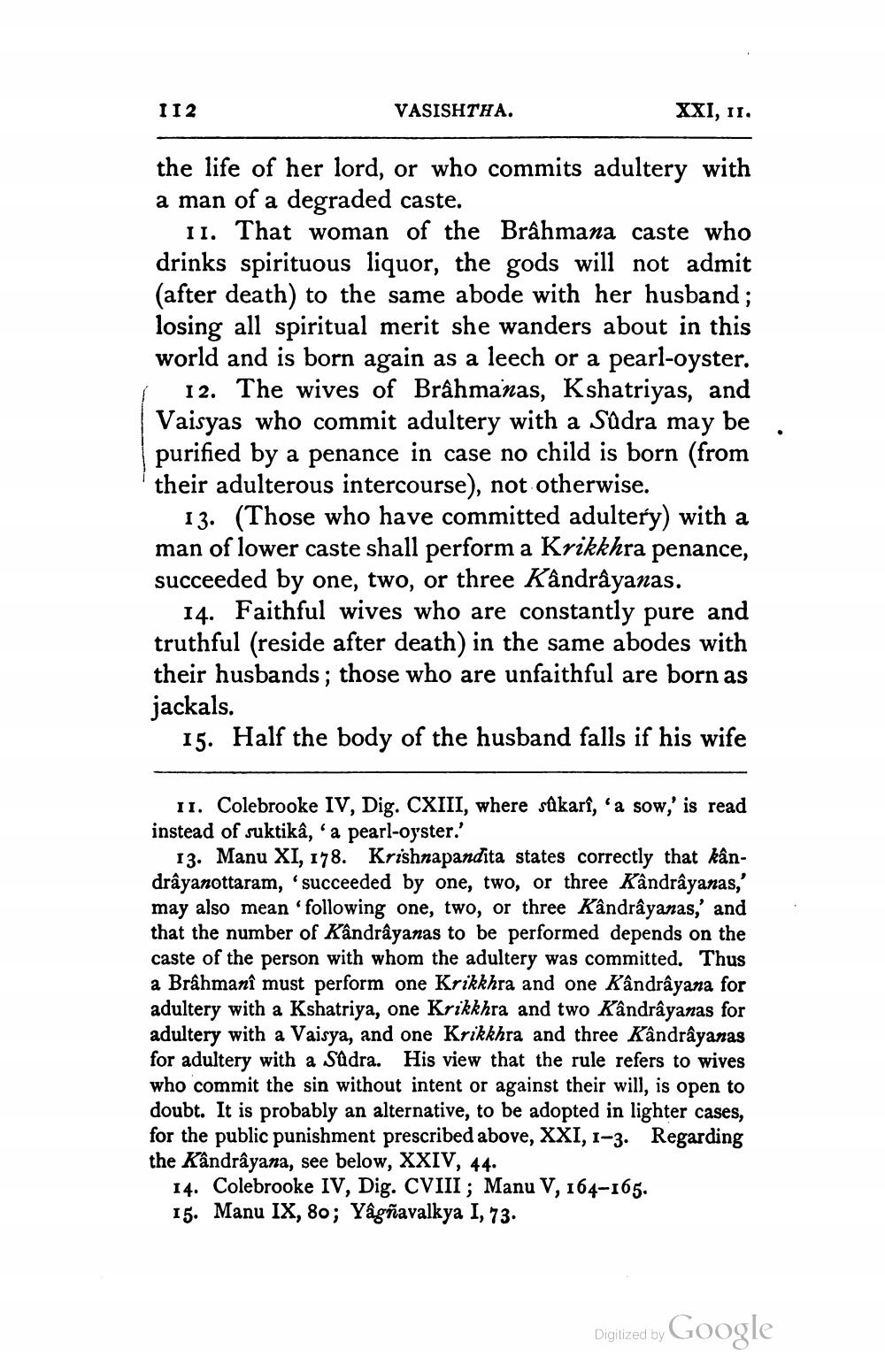________________
II2
VASISHTHA.
XXI, 11.
the life of her lord, or who commits adultery with a man of a degraded caste.
11. That woman of the Brâhmana caste who drinks spirituous liquor, the gods will not admit (after death) to the same abode with her husband; losing all spiritual merit she wanders about in this world and is born again as a leech or a pearl-oyster.
12. The wives of Brâhmanas, Kshatriyas, and Vaisyas who commit adultery with a Sûdra may be purified by a penance in case no child is born (from their adulterous intercourse), not otherwise.
13. (Those who have committed adultery) with a man of lower caste shall perform a Krikkhra penance, succeeded by one, two, or three Kândrayanas.
14. Faithful wives who are constantly pure and truthful (reside after death) in the same abodes with their husbands; those who are unfaithful are born as jackals.
15. Half the body of the husband falls if his wife
11. Colebrooke IV, Dig. CXIII, where sûkarî, 'a sow,' is read instead of suktikâ, a pearl-oyster.'
13. Manu XI, 178. Krishnapandita states correctly that kândrâyanottaram, succeeded by one, two, or three Kândrayanas,' may also mean 'following one, two, or three Kândrayanas,' and that the number of Kândrayanas to be performed depends on the caste of the person with whom the adultery was committed. Thus a Brâhmanî must perform one Krikkhra and one Kândrayana for adultery with a Kshatriya, one Krikkhra and two Kandrayanas for adultery with a Vaisya, and one Krikkhra and three Kândrayanas for adultery with a Sudra. His view that the rule refers to wives who commit the sin without intent or against their will, is open to doubt. It is probably an alternative, to be adopted in lighter cases, for the public punishment prescribed above, XXI, 1-3. Regarding the Kândrâyana, see below, XXIV, 44.
14. Colebrooke IV, Dig. CVIII; Manu V, 164-165. 15. Manu IX, 80; Yâgñavalkya I, 73.
Digitized by Google




